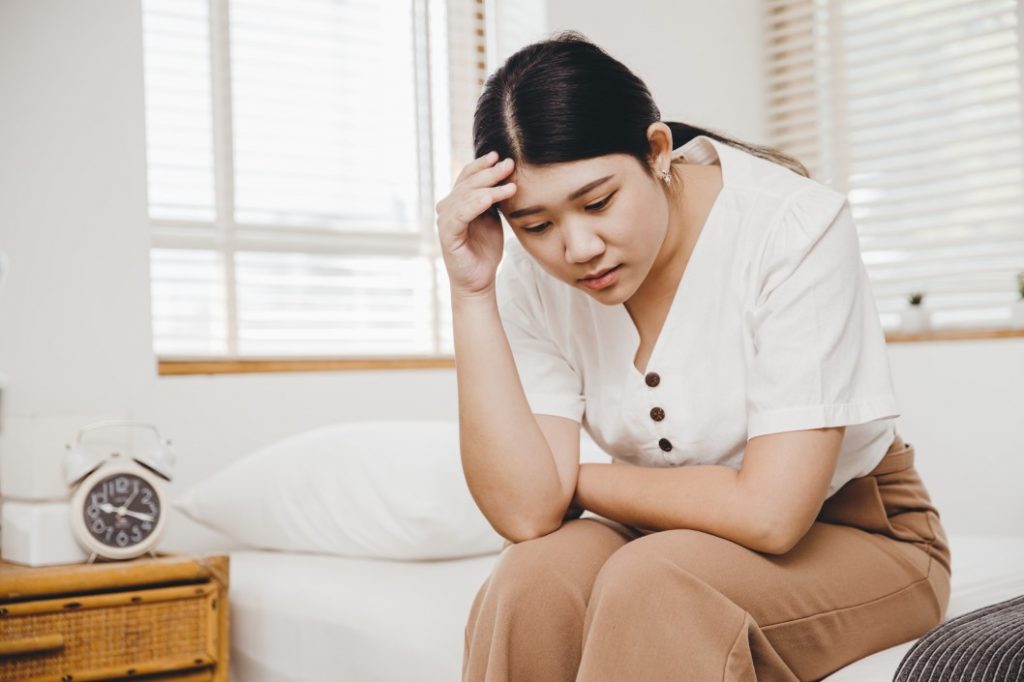There were many researchers who studied the effects of the current pandemic on women’s mental health. A majority of studies showed that the pandemic has negatively impacted women’s mental health. Results showed that women suffered higher rates of depression and anxiety(2). Why is that?
- Work from home + stay at home mom – Since the start of the pandemic, many countries have locked down in order to preserve the safety of the people. Thus, many childcare services had to stop, whether by the choice of the parents or the closing of such service. Then, when the governments lifted the lockdown, businesses resumed to ‘normal’. However, due to safety concerns, parents may choose to discontinue such services and care for their child by themselves. And usually, women are the ones who pick up the responsibility in addition to working from home (2). This then creates a high level of stress for the women, as they have to juggle many ‘hats’.
- Men are stepping up, but not sufficiently. Although there are men who do help out at home, there needs to be more who pick up house chores. Alas, old habits die hard. We tend to see house chores as women’s responsibility, and men would occasionally help out. Thus, women are bearing the stress of working from home and the responsibility of getting house chores done (6)
- There’s a higher percentage of women dropping out from the workforce, both voluntarily and involuntary. Data showed that leisure, hospitality, education, retail are the industries that got hit the hardest, and a majority of workers in these industries are women (1)(3). At the same time, more women are considering reducing their work hours in order to care for the family
- Violence. More specifically, gender-based violence. We understand that there are cases where men were the victims of abuse. However, there is still a higher percentage of women who are victims of abuse. The risk increases when they are forced to hunker down with their abuser. On top of that, stressors such as financial stress increases irritability (5).

What can you do on an individual level?
- Ask everyone to chip in with housework. Everyone in the house has the responsibility to maintain the cleanliness in the house. House chores do not belong to the mother or wife alone. Every family member shares the responsibility of maintaining a clean home.
- Reconnecting/connecting with a friend. Check in on each other! The simple act of connecting with someone, even virtually, is particularly important now as it helps us stay connected with others emotionally.
- Join a support group. Look for a support group that suits your needs where people share similar experiences as you do and support each other through difficult times. There are virtual support groups available.
- Schedule ‘me time’ to relax. Read a book, take a bath, do anything that relaxes you. Let your family members know that you are not to be disturbed during that time. You need some time to recharge. You cannot constantly be in a mentally heightened state, constantly on the go. Your brain needs to relax, recharge and recalibrate.
- Give yourself credit. We tend to minimize our accomplishments. Give yourself credit for what you have accomplished, especially during this time when nothing is normal. Give yourself a pat on the back!
- Call WAO or AWAM in Malaysia, reach out to someone you trust for help. You deserve to be safe.
- Talk to a counsellor to process what you are going through, learn different ways to ease your burden.
Disclaimer: You are encouraged to use the content from this site to improve your mental health. However, this is not a substitute for professional help (be it medical and/or mental health care, treatment and/or diagnosis).
Reference:
- https://www.cnbc.com/2020/05/14/coronavirus-job-losses-disproportionately-impact-women.html
- https://www.researchgate.net/publication/342932914_Stress_Burnout_and_Depression_in_Women_in_Healthcare_during_COVID-19_Pandemic_Rapid_Scoping_Review
- https://www.bbc.com/worklife/article/20201021-why-this-recession-disproportionately-affects-women
- https://www.theatlantic.com/international/archive/2020/03/feminism-womens-rights-coronavirus-covid19/608302/
- https://www.un.org/africarenewal/magazine/november-december-2020/gender-based-violence-we-must-flatten-curve-shadow-pandemic
- https://edition.cnn.com/2020/06/19/health/fatherhood-child-care-coronavirus-pandemic-wellness/index.html




